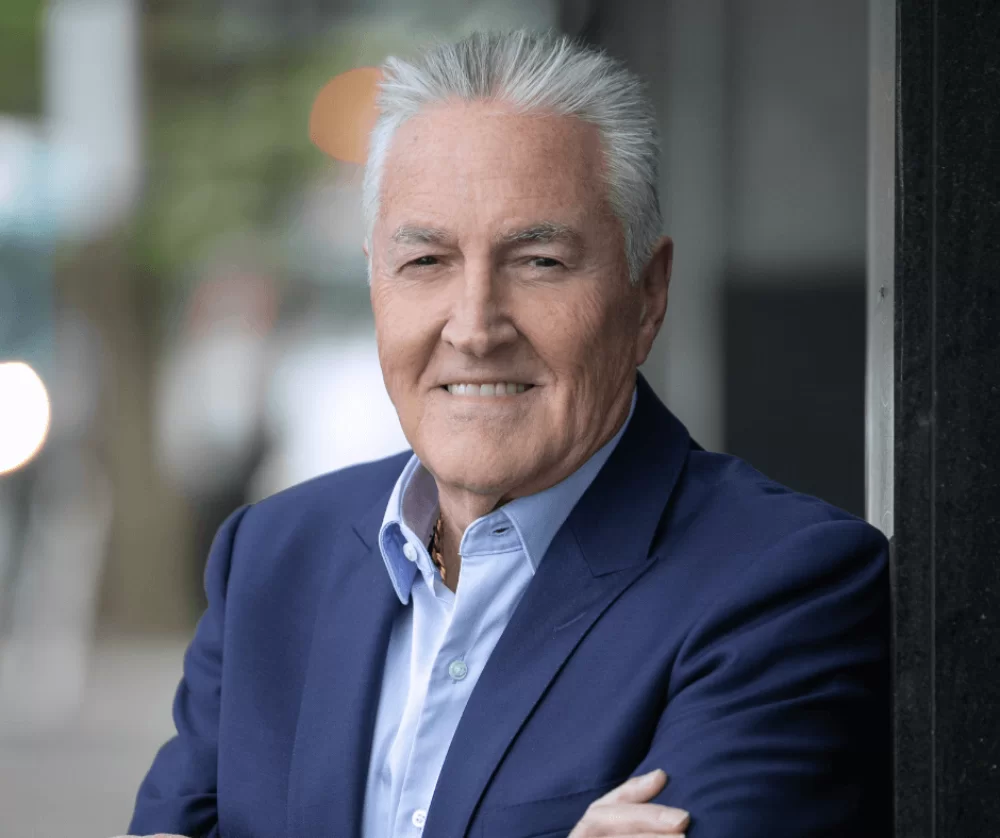Veteran Business Broker Tony Arena Explores the Future of Business Broking

Veteran Business Broker Tony Arena Explores the Future of Business Broking
As a veteran of the business broking industry, Tony Arena has a wealth of experience and knowledge to share, so the opportunity to meet with him can lead to a riveting conversation.
After graduating with an Arts/Law degree, Tony immersed himself in the legal profession focusing on criminal law. Before he was 30, he was “handling Supreme Court murder cases and all sorts of grim and gruesome cases”.
Six years after becoming a barrister, Tony decided he had seen enough of that side of life and looked for a career change. His father was already a successful business broker, so the decision to be mentored by a pioneer of the industry was a simple one.
How has business broking transformed?
Business broking has not been immune to the relentless advance of technology, and Tony from BCI Business Brokers identifies the internet as the most significant change during his 30 years in the industry.
“When I first started, we always made contact with people by telephone or in person. Potential buyers and sellers would come to our office to discuss business. You had a greater opportunity to judge body language. We did a lot more personal work.”
“Now it’s emails and Zoom calls. I have sold businesses where I never met the buyer or the seller. The idea of a personal meeting has just drifted away.”
Tony agrees that technology has expanded the pool of potential clients. Business buyers or sellers (as well as the broker, subject to licensing restrictions) are no longer restricted by geography. Technology has also impacted the types of businesses being traded. “We are selling fewer and fewer physical businesses,” Tony observed. “You can walk down any main street and see nothing but businesses that require personal contact like medical services or food/hospitality and, of course, lots of empty shops that used to sell physical goods."
“Any bricks-and-mortar businesses hoping to succeed will have built a significant online component. And once they have that online presence, the cost of a physical presence (rent, power, etc.) becomes too high to justify.”
The result, as Tony explained, is that brokers are selling more businesses that are wholly or substantially digital or service. And this trend was happening well before the pandemic. “We recently sold a recruitment business that has been run online for eight years. – No offices!”
“There are plenty of good reasons the trend towards working from home will continue - it’s better for the business owner because it reduces overheads, it’s better for the employees because they don’t have to commute, and it’s better for the government because the reduced traffic reduces congestion and demand for public transport - just imagine what it would be like if everyone had to start commuting again!.”

Are buyers asking for more?
Tony agreed that the information a potential buyer wants has not changed despite the change in business models. “The financial statements are always my first stop. Any due diligence will always focus on the financials.
You need to understand the future profitability of the business for the new owner by adjusting the profit and loss statement. The balance sheet will give a guide to the amount of working capital required.
But apart from the actual numbers, if the financial statements are tidy and well-presented, it often indicates that the business is well run too.”
The reliability of the financial statements is an important factor in any successful sale. The statements are usually unaudited. The accountant has to rely on the accuracy of the underlying records provided by the business, and the business broker has less opportunity to scrutinize the records.
Tony commented, “I will look at the financials fairly aggressively because I know the questions a serious buyer is going to ask. Having said that, I can do a solid investigation, and even then, everything falls apart when the buyer does a deeper dive and the figures don’t stack up.”
“Some buyers don’t place as much importance on the financials if they believe they can substantially improve the business. One potential buyer told me he looks to see if the business still uses a fax machine. If they do, he knows he can improve the business, so the financials have merely historical interest”
And, with June 30 rapidly approaching, Tony commented that cut-off dates are artificial, so he’s prepared to use the financials for any 12-month period. During Covid, we had to go back to 2019 for the last unaffected full financial year and now, calendar 2022 is the only 12 month period most people have that is not affected by lockdowns.
“Of course, June 30 financial statements are ideal because that’s when the accountant tidies up the records and processes the end-of-year entries.”
But, for most buyers, confidence in the financial statements is the first part of the due diligence process.
The second part Tony focuses on is understanding relationships. The current owner will have established relationships with customers, suppliers, and employees.
A potential buyer must assess the transferability of those relationships. A careful review of contracts, observation of the current owner’s involvement in the business, and an assessment of the potential buyer’s preferred management style will indicate any potential transferability challenges.
And the third part? Maintainability.
“This is all about … “Is the industry going to be around, in say, ten years? Disruption moves much faster these days, so AI disruptors will threaten some industries we’ve regarded as secure in the past.”
“Now buyers are looking to buy boring services businesses that need people to provide the service. These businesses need people to get out of the office to do the plumbing or electrical repairs and hospitality businesses. They can’t be substantially disrupted, but they can be improved by better marketing and back-end systems.”
Businesses that operate in industries that are targets for disruption will face valuation issues unless there are other mitigating factors.
“Most vendors have a fair idea of what their business is worth. The other day I had to almost double the vendor’s estimate because they didn’t know what was happening in the current market. That is our advantage - we know the recent relevant transactions.”
So, for Tony, profitability, transferability, and maintainability are the cornerstones of a due diligence process.

Weekly updates on business sales and advice, delivered to your inbox. Sign up to Newsletter
Franchise vs Business Buyers
Tony agrees that people are still people, but with the rise in the number of franchises in Australia, he regards those who want to buy a franchise as having a different attitude to those willing to operate a non-franchised business.
“They are different. They are more averse to risk, don’t mind being restricted or controlled, and prefer the certainty and protection of a franchise.”
“A non-franchise buyer, on the other hand, doesn't want to be restricted, and quite often doesn't want to pay the franchisor for things that they can provide themselves. Many non-franchise buyers have been in a franchise before, and what they have learnt stands them in good stead for when they move into a non-franchise business. It really is horses for courses.”
“Ideally, we end up with a few potential buyers, and the vendor can select the buyer most suitable. The vendor wants the business sold, but my rule is: You want to sell the business, but you want it to remain sold 12 months after the transaction. No one wants court cases or even financial disasters.”

What is the future of business broking?
“When I started, there were probably 50 business brokers in NSW. Now I think there would be at least three to four hundred, so it’s certainly a growing industry. Like business in general, the move to digital communication has been significant.”
Tony is confident the future looks bright. And he is at the forefront of molding that future.
He is presenting at the International Business Brokers Association Conference in Orlando in May. The title of his paper is ‘The Business Broker of Tomorrow’. “ My focus this year is around future scenario planning, which prepares us for the threats that may be ahead and teaches us how to take best advantage of the opportunities that no doubt will arise."
Tony sees co-brokering as being more prevalent in America than in Australia. He is hopeful that will be the direction ahead for Australia. “Brokers working cooperatively and collaboratively will improve the experience for clients.”
And, the AI advancement will not leave business brokers unaffected. “It has the ability to improve our processes at all stages of selling a business. If you utilise it properly, it will help you. The risk is to let AI take over.”
“For example, if you put a chatbot on your website and expect clients to engage with a computer, you will be disappointed. Getting the chatbot to send you a text to alert you to a prospect will combine elements of AI but retain the personal interaction.”
“The importance of personal communication will become even more important, and brokers should resist the temptation to let AI take over. Our aim should be to deliver a personal service quicker and better using technology.”
So, for Tony, the future of business broking is in providing superior, personal service and being prepared to move with the times - that much hasn’t changed.
Tags: feature business broker
About the author









